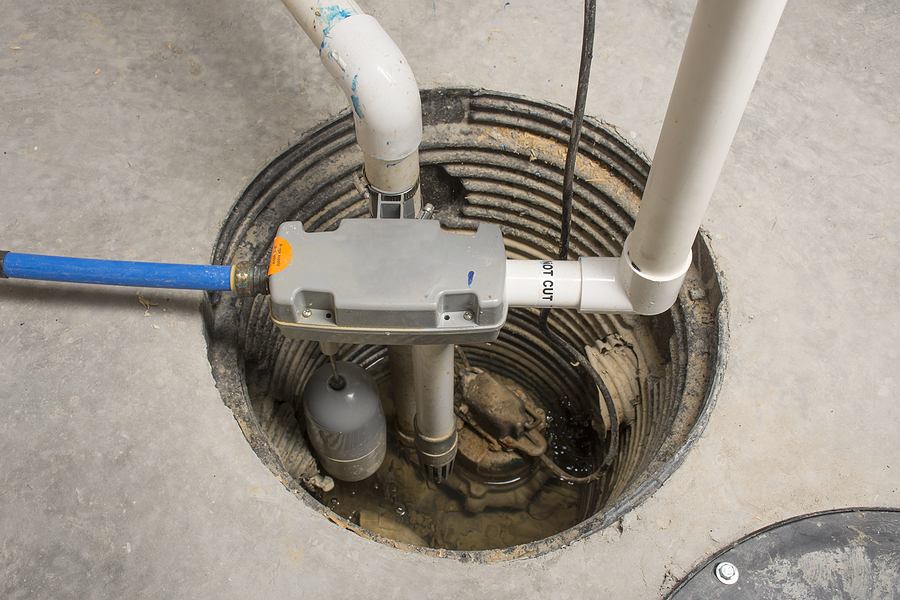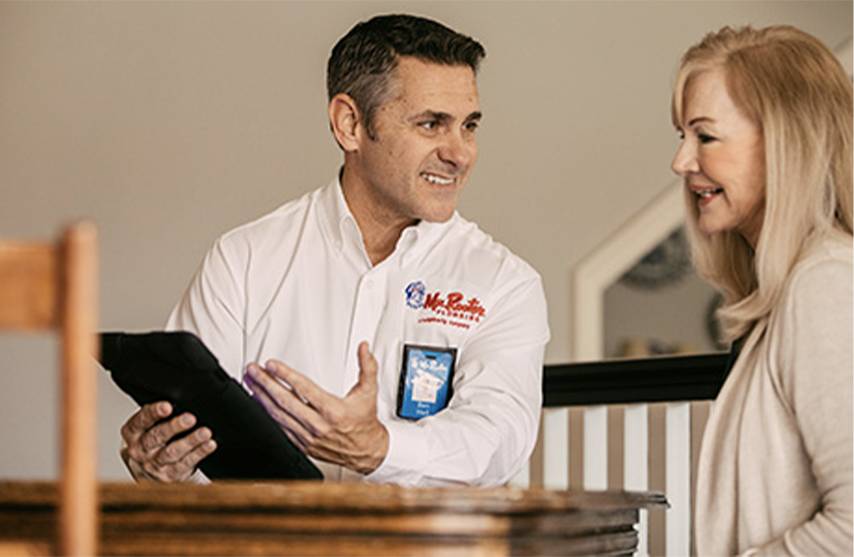
A wet basement doesn’t always show up all at once. You might notice a puddle after heavy rain or a damp smell. Ignoring it only lets the problem grow. At Mr. Rooter Plumbing, we know how fast a small leak or drainage problem can turn into serious water damage. A sump pump is one of the most reliable tools for keeping a basement dry and protecting a home’s foundation. Once you understand how these systems work, it’s easy to see why they’re a smart investment. Keep reading to find out how sump pumps stop flooding and protect your home.
Basements sit below ground, which makes them vulnerable to water pressure from surrounding soil. When it rains, water seeps through cracks, gaps, or porous concrete. Even small leaks can raise humidity levels and lead to that unmistakable damp smell. The moisture creates a perfect place for mold to grow. Sometimes the problem isn’t visible at all. Water can build up in the dirt around the foundation until it finds an opening. Once it does, that moisture begins to collect on the basement floors and walls. Dehumidifiers and sealants can make things look better for a while, but they don't solve the problem. A sump pump does. It redirects water instead of trapping it inside the walls or floor. When you invest in professional sump pump installation, the water is pushed out before it can cause damage, so it keeps your basement dry and your foundation in good shape.
A pit, called a sump basin, is installed in the lowest part of the basement. As groundwater collects beneath the home, it naturally drains into this basin. When the water level reaches a certain point, the pump activates. It moves the water out through a discharge pipe that leads away from the foundation. A pedestal sump pump has a motor that sits above the basin, which makes it easier to maintain. A submersible pump is sealed and rests inside the pit. It’s quieter and can handle higher volumes of water. Both types use a float switch or pressure sensor to know when to turn on. During heavy rain, this system works automatically. The pump activates as needed and keeps the water from pooling under your floor. When installed correctly, it can handle large volumes of water and prevent flooding that would otherwise lead to extensive damage and expensive plumbing repair service calls.
Some homes already have a sump pump, but many older properties do not. Knowing the warning signs helps you figure out when it’s time to install a sump pump. Standing water after a storm is the clearest clue, but not the only one. A damp, musty smell, peeling paint, or humidity all point to too much moisture in the air. Cracks along the walls or floor can also mean water pressure is building up against your foundation. Another red flag is an unreliable drainage system outside your home. If gutters overflow or downspouts drain too close to the foundation, that water needs somewhere to go. When the soil around your home becomes saturated, it pushes against the basement walls and seeps through any weak points. A professional plumber can check out the situation and recommend the right type of pump for your home. They’ll also take a look at your drainage slope and inspect nearby plumbing systems to make sure water is being directed away efficiently.
Home improvement videos make sump pump installation look simple, but precision is important. A sump pump that isn’t installed correctly can create more trouble than it prevents. The basin has to be deep enough to hold water without putting stress on the foundation. The discharge line also needs to move water far enough away so it doesn’t drain back toward the house. If the pump is too small or the seal isn’t tight, it can fail when a storm comes. Electrical parts should always be protected from moisture, which is why professional sump pump installation is worth the investment. When handled by an experienced plumber, the system is tested, sealed, and calibrated for your specific property. It’s also important to think about power. Since heavy rain can knock out electricity, a backup battery or water-powered pump keeps the system running when it matters most.

Installing a sump pump protects the structure and health of your entire home. Excess moisture leads to wood rot, rust, and weakened concrete. It can damage stored belongings and flooring. Keeping your basement dry protects indoor air quality and improves property value. Prospective buyers see it as a sign of good maintenance and structural stability. In areas where groundwater levels fluctuate, having a sump pump system in place can lower insurance claims after severe weather. Sump pumps are built to last, but like any appliance, they need attention. Homeowners should test the pump at least once a year. Pour a few gallons of water into the pit and make sure it activates. Keep the discharge line clear of debris and ice. With these small steps, your pump stays ready for the next storm. If you already have a system but it hasn’t been checked in years, schedule a maintenance visit. A plumber can inspect the pit, replace worn components, and make sure everything runs.
If you notice signs of water damage or hear the pump running nonstop, don’t brush it off. It could mean the system isn’t draining the way it should, or the float switch is stuck in the “on” position. Unusual noises, short cycling, or water still pooling around the pit mean it’s time to call a professional. At this point, do-it-yourself troubleshooting might make things worse. The best move is to call a qualified plumber who understands basement waterproofing and pump systems. They can pinpoint the cause quickly and prevent further damage. Even if your basement seems dry, it’s smart to have a professional inspection before the rainy season. A quick check now can save thousands of dollars in repairs later. If your home doesn’t have a sump pump, this is also the perfect time to ask about sump pump installation in New Castle and make sure the system is ready before water ever becomes a problem.
A sump pump gives your home a reliable defense against flooding, humidity, and long-term foundation issues. Whether you’re dealing with an active leak or planning preventive maintenance, it’s worth acting before the next storm hits. At Mr. Rooter Plumbing, our team has the skill and equipment to handle installation, repair, and ongoing maintenance for any type of pump system. If your basement shows signs of moisture, contact us today to schedule an inspection or request a quote.